HISTORY
HISTORY
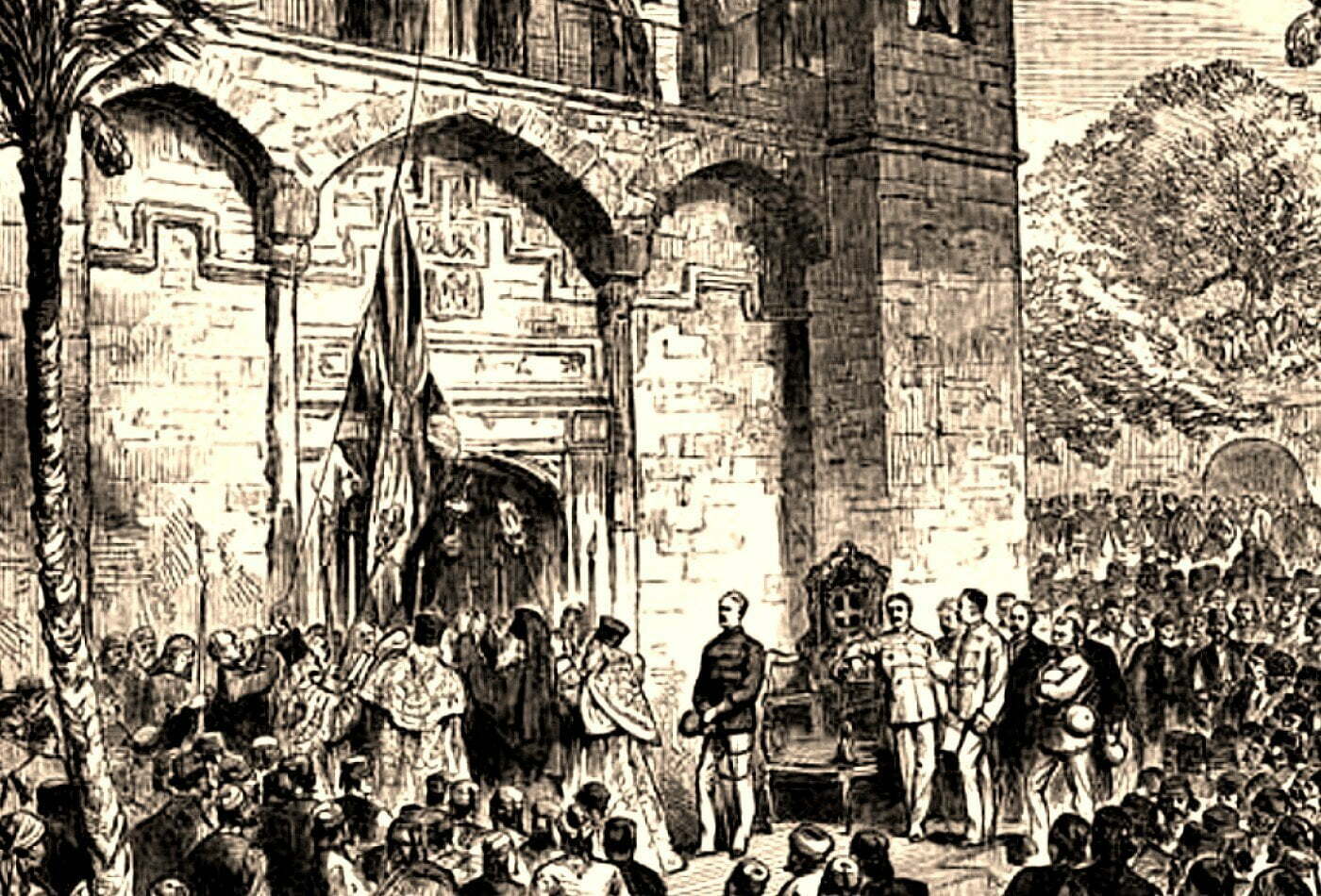
On June 4, 1878, the Ottoman Empire ceded Cyprus to the British Empire as a protectorate (and later as a possession) with a Treaty of Defence Alliance which was secretly signed during the Berlin Congress (June 4, 1878 – July 1, 1878).
For the history of the treaty, the British Empire would take the responsibility to help Sultan Abdul Hamid II with military force so as to defend the areas of Watum, Ardahan and Kars in case Russia wanted to conquer these areas or it would attempt to occupy other Ottoman territories in Asia.
This agreement involved Cyprus as the Sultan agreed to cede the island to England with full right of occupation and administration. The time limit for the agreement to be put in force was no later than one month after it was contracted.
Thus, 24 days later, the flag of the British Empire is hoisted in Nicosia and the beginning of the British occupation of Cyprus is marked. The first governor of Cyprus was Lieutenant General Sir Garnet Joseph Wolseley, who was received by the then Archbishop of Cyprus, Sophronius III.
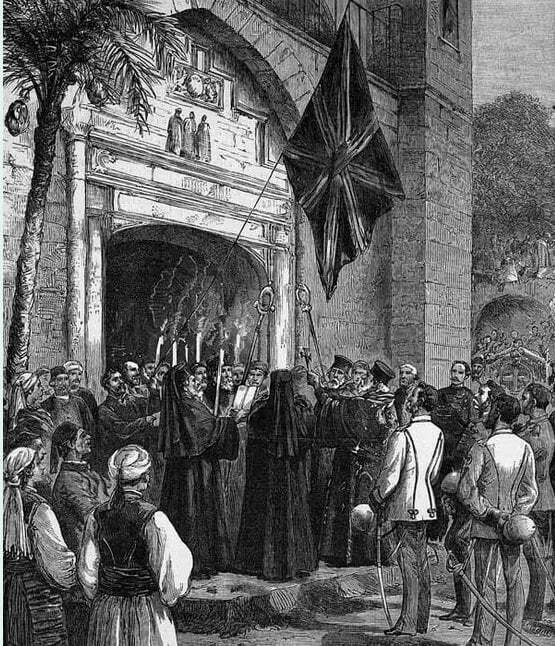
The beginning of the British occupation, the raising of the English flag in July 1878 in the metochi of Agios Prokopios
The British rule in Cyprus will last 82 years and will go through several phases until the establishment of the Republic of Cyprus in 1960. Although Cypriots saw the transition of Cyprus from the Ottoman occupation to England positively, mainly due to England’s religion and culture, but also because of the hope that the British would in turn cede the island at some point to Greece, this view changed over the years.
The Ottoman Empire’s relations with England would be dissolved in 1914, with the entry of the former into World War I on the side of the Central Powers (Germany, Austria-Hungary, Italy). Thus, England would annex and declare Cyprus as its possession, while in 1925, following the Treaty of Lausanne (1923), Cyprus would be declared a British colony and Turkey would relinquish all its rights to the island.
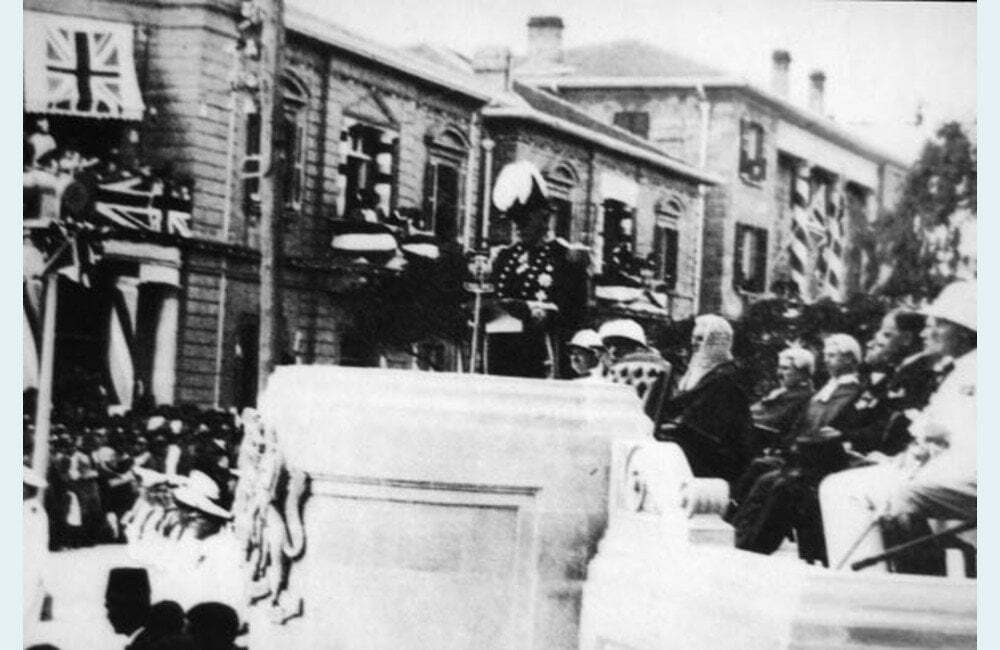
Announcement ceremony of Cyprus in a British colony in Nicosia in 1925.
However, the Cypriots did not stop asking the British to fulfill their desires regarding their Union with Greece. The national demands of the Cypriots were carried out through the promotion of the request for Cyprus’ Union with Greece with resolutions, memoranda and national embassies in London, in an effort to mobilize the British public opinion.
In addition, the Cypriots voluntarily participated in the wars of the Greek Nation (Greek-Turkish War of 1897, Balkan Wars 1912-1913, World War I 1914 – 1918, Asia Minor Campaign 1922). They also took part in World War II as they believed that after the war and the victory of the Allies, they would help their homeland to be liberated from colonialism.
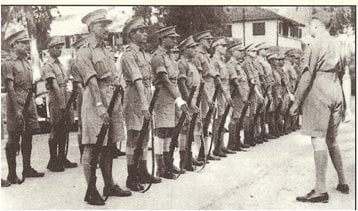
Greek Cypriots of the Cypriot phalanx
The course of the Greek Cypriots towards the conflict with the colonial regime was inevitable, due to the policy of the British, which imposed harsh customs duties, devalued the legislative council of Cypriot MPs, while imprisoning and imposing fines on those who reacted. The culmination of the already tense situation was Palmer’s rule (1933 -1939). During this period, liberal and dictatorial measures were taken such as the abolition of the Legislative Council, the censorship of the press, the prohibition of gatherings of groups of more than five people and trade unions while 28 trade union leaders were sentenced to up to four years in prison on charges of subversive conspiracy.
An attempt for dehellenization was also made. Decrees forbidding the posting and display of the Greek flag, the use of Greek national symbols and the National Anthem, the posting of images of national heroes in schools and associations, while the teaching of history was severely curtailed.
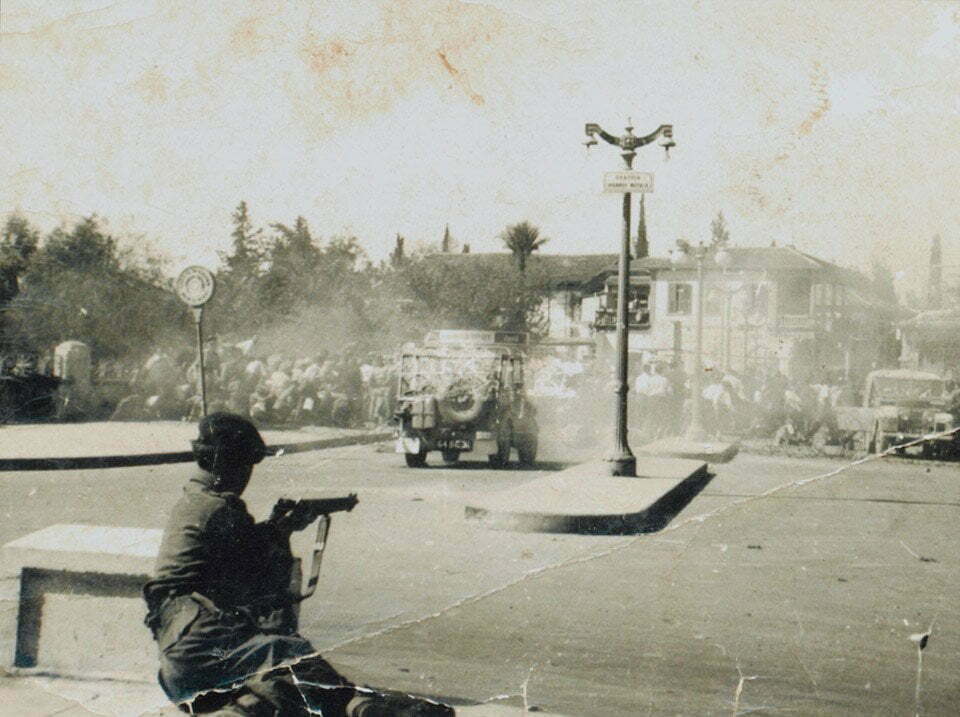
All this led to the well-known events, to the uprisings of the Greeks of Cyprus, to the Union Referendum and of course to the liberation struggle of EOKA in 1955-1959.
With the establishment of the Republic of Cyprus, Britain still has a presence on the island in two areas (Akrotiri, Dhekelia) which are under British management as British overseas territory.
The United Kingdom has demanded and succeeded in occupying a part of Cyprus in the form of military bases, due to Cyprus’ strategic position in the Mediterranean Sea, for the benefit of British interests.
With information from: ΙΣΤΟΡΙΑ ΤΗΣ ΚΥΠΡΟΥ ΜΕΣΑΙΩΝΙΚΗ ΚΑΙ ΝΕΟΤΕΡΗ
Armenian Genocide Remembrance Day
On this day, 109 years ago, the genocide of the Armenian people by the Ottoman Empire began, with April 24 being the day of…
April 10, 1826 | The heroic Exodus of Messolonghi
Three years after the failed attempt of Kioutachis and Omer Vryonis to capture Messolonghi, the Sultan had a new plan.
Hellenic Army General Staff (HAGS) | Events for the 83rd Anniversary of the Battle of the Forts
On Sunday, April 7, 2024, the 83rd anniversary of the Battle of the Forts (April 6-9, 1941) was celebrated at “LISSE”, “RUPEL”,…
Hellenic Entrepreneurs Association | Ideas & Positions for the Promotion of Greek Entrepreneurship
The members of the Hellenic Entrepreneurs Association (E.E.N.E.) participated in a roundtable discussion entitled “Ideas, Positions…
Ukraine | Increase in defence spending by 367 million euros for the acquisition of drones
Kiev is increasing spending by 15.5 billion hryvnias (367 million euros) to bolster Ukraine’s armed forces with drones, according to…
HMoND | The legislative initiative for HCDI is under consultation
The legislative initiative of the Ministry of National Defence, under the title: “Establishment of the Hellenic Center for Defence…
Russia | Cluster bombs hit residential area in Odessa
Images from Russia’s strike in the heart of Odessa, which hit the so-called “Harry Potter Castle”, a former politician’s mansion now…
France | Industries prioritize orders of anti-aircraft missiles
The Armed Forces Ministry of France has instructed industries involved in the production of Aster anti-aircraft and anti-ballistic…
Ecuador | Appeals to International Court of Justice denouncing Mexico
Ecuadorian police stormed the Mexican embassy hours after the Mexican government granted former Vice President…












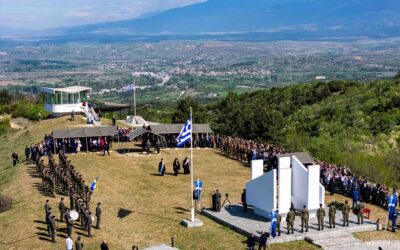






0 Comments